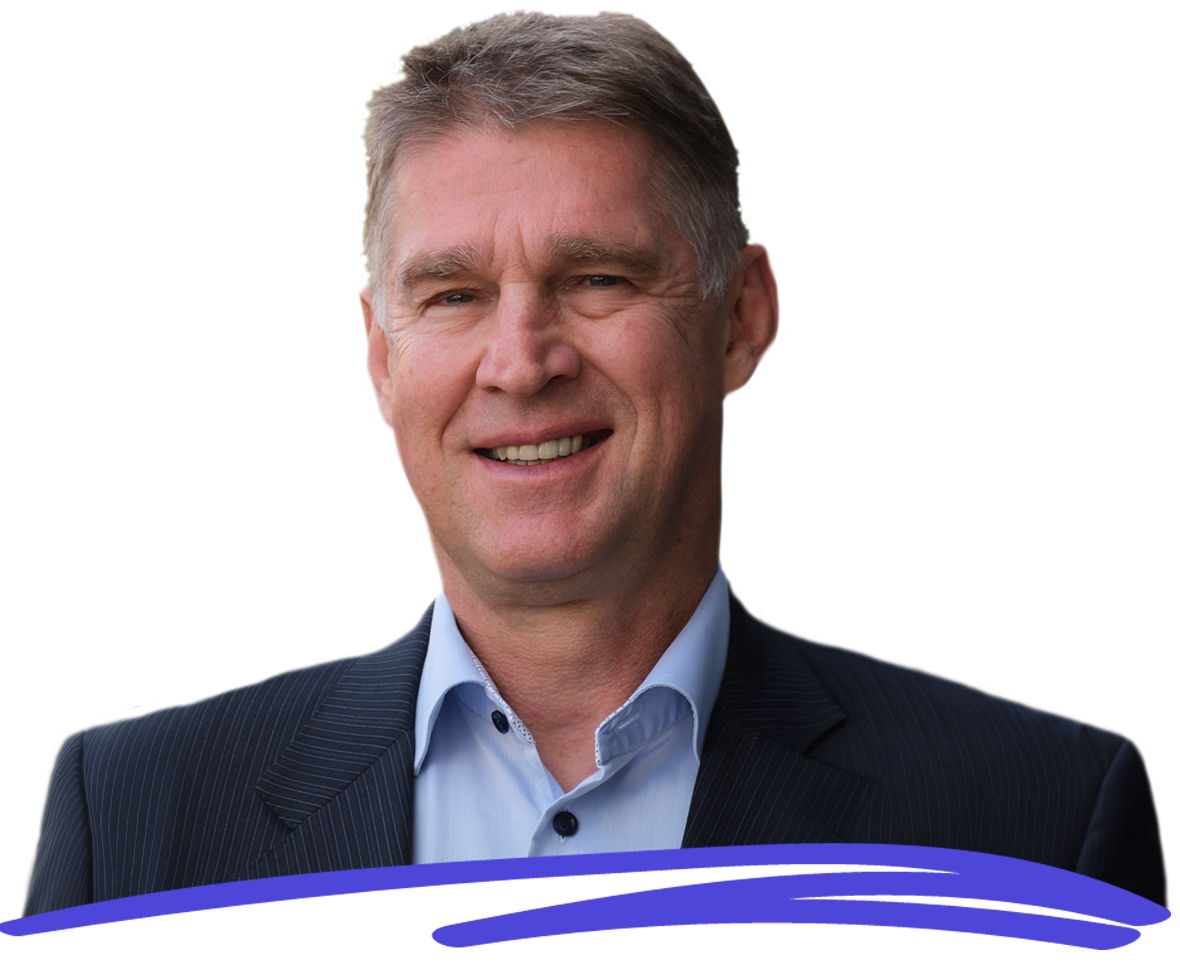Good foot forward
Chris Good CA’s candour about his recovery from a mental health crisis offers a signal lesson for the profession, says President Clive Bellingham CA
Good foot forward
Chris Good CA’s candour about his recovery from a mental health crisis offers a lesson for the profession, says President Clive Bellingham CA
As you’ll read elsewhere in this issue, ICAS is rolling out its new syllabus this month. It’s a cornerstone of our new 2030 strategy, but its significance goes way beyond ICAS. We believe it will help to widen access to the profession.
The skills that a CA acquires during their time with us are in great demand for financial and, increasingly, non-financial reporting. This can often lead to CAs working long hours and running the risk of burnout, with all its consequences for physical and mental health.
That brings me to an article in our previous issue about Chris Good CA. I strongly recommend you read it – not because I’m his mentor, although we will come to that. It’s a powerful piece in which Chris opens up about the challenges he has faced, brought on by anxiety and depression, then compounded by a serious medical problem that resulted in his hospitalisation.
Chris has had a long and difficult journey. At one point, he left the profession for six months, taking a shop-floor job in retail to physically exert himself in order to improve his sleep. I’m pleased to report his life and career are now back on track. But it’s one thing to discuss a crisis in your life with a specialist, family and friends, or a mentor for that matter, but it’s another to be interviewed about it, to put your story out there for anyone to read. I applaud him for doing that.
I imagine most of us have at some point had colleagues or friends who give the outward impression that all is fine, that their career is progressing nicely, who then quit suddenly because of a personal crisis they preferred to keep hidden from work.
“If you’re willing to listen, share your knowledge and experience, and build up a relationship, mentoring should come quite naturally to you”
The profession has made significant strides in recent years, enabling accountants to open up and talk about their wellbeing in ways that would’ve been anathema to previous generations of CAs. Yet many still fear having a conversation about their mental health and how that might be interpreted by an employer, a fact confirmed by numerous surveys.
One of many areas that Chris highlights is the need for more, and better, dialogue if we are to eradicate the stigma that is still attached to mental ill health. Many will choose to suffer in silence when sometimes all it requires to put people on the path to recovery is candid conversation. A good mentor can provide that because the mentee knows they can go to them with their professional problems.
Sometimes I get a call out of the blue from a mentee with something on their mind, as happened recently with Chris. I never profess to have all the answers, but I’m able to give a perspective based on my experience. I’ve been a partner, had senior roles, and built and led teams, so hopefully I can also see things from the other side of the fence.
I greatly enjoy being a mentor. If you’re the sort of person who is willing to listen, share your knowledge and experience, and build up a relationship, it’s something that should come quite naturally to you. It’s about being able to put yourself in somebody else’s shoes. With Chris, it’s been a symbiotic relationship. I have certainly learned a lot from him.
In the previous issue of CA magazine, we also marked the 10th anniversary of the ICAS Foundation. As well as the financial support the foundation provides to those from lower-income households, it ensures each of its students has access to a mentor.
For me, that is every bit as important as the bursary. Foundation students tend not to come from an accounting background – and becoming a CA is difficult enough even when you do. So, to have somebody who has been down that road, who can be a sounding board, can be the difference between that student losing heart at the first setback or finding the confidence and resilience to go on to qualify as a CA.
Bringing this back to where I started, the ICAS Foundation is also core to our 2030 strategy. The profession needs to be an attractive one, but also one that is accessible to all. The better we achieve that, the more we will ensure chartered accountancy has the great future it needs.
For more about mentoring, watch our recent webinar
Meet your match with the ICAS Mentoring programme
linkedin.com/in/clivebellingham
@BellinghamClive

Good foot forward
Chris Good CA’s candour about his recovery from a mental health crisis offers a lesson for the profession, says President Clive Bellingham CA
As you’ll read elsewhere in this issue, ICAS is rolling out its new syllabus this month. It’s a cornerstone of our new 2030 strategy, but its significance goes way beyond ICAS. We believe it will help to widen access to the profession.
The skills that a CA acquires during their time with us are in great demand for financial and, increasingly, non-financial reporting. This can often lead to CAs working long hours and running the risk of burnout, with all its consequences for physical and mental health.
That brings me to an article in our previous issue about Chris Good CA. I strongly recommend you read it. Not because I’m his mentor, although we will come to that. It’s a powerful piece in which Chris opens up about the challenges he has faced, brought on by anxiety and depression, then compounded by a serious medical problem that resulted in his hospitalisation.
Chris has had a long and difficult journey. He left the profession for six months at one point, taking a shop-floor job in retail to physically exert himself in order to improve his sleep. I’m pleased to report his life and career are now back on track. But it’s one thing to discuss a crisis in your life with a specialist, family and friends, or a mentor for that matter, but it’s another to be interviewed about it, to put your story out there for anyone to read. I applaud him for doing that.
I imagine most of us have at some point had colleagues or friends who give the outward impression that all is fine, that their career is progressing nicely, who then quit suddenly because of a personal crisis they preferred to keep hidden from work.
“If you’re willing to listen, share your knowledge and experience, and build up a relationship, mentoring should come quite naturally to you”
The profession has made significant strides in recent years, enabling accountants to open up and talk about their wellbeing in ways that would’ve been anathema to previous generations of CAs. Yet many still fear having a conversation about their mental health and how that might be interpreted by an employer, a fact confirmed by numerous surveys.
One of many areas that Chris highlights is the need for more, and better, dialogue if we are to eradicate the stigma that is still attached to mental ill health. Many will choose to suffer in silence when sometimes all it requires to put people on the path to recovery is candid conversation. A good mentor can provide that because the mentee knows they can go to them with their professional problems.
Sometimes I get a call out of the blue from a mentee with something on their mind, as happened recently with Chris. I never profess to have all the answers, but I’m able to give a perspective based on my experience. I’ve been a partner, had senior roles, and built and led teams, so hopefully I can also see things from the other side of the fence.
I greatly enjoy being a mentor. If you’re the sort of person who is willing to listen, share your knowledge and experience, and build up a relationship, it’s something that should come quite naturally to you. It’s about being able to put yourself in somebody else’s shoes. With Chris, it’s been a symbiotic relationship. I have certainly learned a lot from him.
In the previous issue of CA magazine, we also marked the 10th anniversary of the ICAS Foundation. As well as the financial support the foundation provides to those from lower-income households, it ensures each of its students has access to a mentor.
For me, that is every bit as important as the bursary. Foundation students tend not to come from an accounting background – and becoming a CA is difficult enough even when you do. So, to have somebody who has been down that road, who can be a sounding board, can be the difference between that student losing heart at the first setback or finding the confidence and resilience to go on to qualify as a CA.
Bringing this back to where I started, the ICAS Foundation is also core to our 2030 strategy. The profession needs to be an attractive one, but also one that is accessible to all. The better we achieve that, the more we will ensure chartered accountancy has the great future it needs.
For more about mentoring, watch our recent webinar
Meet your match with the ICAS Mentoring programme
linkedin.com/in/clivebellingham
@BellinghamClive



